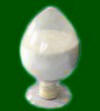| Mubychem Group, established in 1976, is the pioneer manufacturer of Sodium Stearate, Pharmaceutical, Fragrance & Flavor chemicals in India. Mubychem Group has several manufacturing facilities spread across Gujarat and Mumbai India and world wide contacts and toll manufacturers. We are exporting globally to countries like USA, Canada, Europe, UAE, South Africa, Tanzania, Kenya, Egypt, Nigeria, Uganda, Turkey, Mexico, Brazil, Chile, Argentina, Dubai etc. |
The participating units have one or more accreditations like FDA - GMP approval; ISO-9001 Certified; "REACH"registered; ISO-22000; Kosher Certified;Halal Certified; HACCP. We offer Pure & IP BP USP FCC Food Grade ACS AR Analytical Reagent Grades of Chemicals | |







Sodium Stearate Manufacturers, MSDS Sheet
Sodium Stearate Manufacturers IP BP USP-NF
Sodium Stearate MSDS Sheet, Material Safety Data Sheet
SECTION 1 - IDENTIFICATION OF THE PRODUCT AND THE COMPANY
Product Name: Sodium Stearate
Chemical Name: Sodium Salt of Stearic Acid
CAS No.: 822-16-2
Chemical Formula: Na (C18H35O2)
SECTION 2 - COMPOSITION/INFORMATION ON INGREDIENTS
Ingradient: Sodium Stearate
CAS No.: 822-16-2
Percentage: 100%
SECTION 3 - HAZARD IDENTIFICATION OF THE PREPARATION
Physical Hazards: Sodium Stearate is an explosive hazard when concentrated dust is present.
Health Hazzards: Irritant.
Exposure Limits: OSHA Permissible Exposure Limit (PEL): 15 mg/m3 total dust. ACGIH Threshold Limit Value (TLV): 10 mg/m3 for total dust for stearate.
Routes of Exposure:
Skin Absorption: Sodium stearate may cause irritation with symptoms of redness, swelling, itching and pain.
Eye Contact: May cause irritation with symptoms of redness, swelling, itching, tearing and pain.
Ingestion: May cause gastroenteritis (inflammation of the lining membrane of the stomach and intestines) with abdominal pain, nausea, vomiting and diarrhea. Systemic effects may follow and may include ringing of the ears, dizziness, elevated blood pressure, blurred vision and tremors.
Inhalation: Sodium stearate may irritate the respiratory tract. Symptoms may include coughing, shortness of breath, sore throat and runny nose. If sufficient amounts are inhaled and absorbed, symptoms may resemble those in acute ingestion.
Effects of Over Exposure: Persons with pre-existing eye or skin conditions or impaired pulmonary function may be more susceptible to the effects of this product.
SECTION 4 - FIRST-AID MEASURES
Skin: Immediately remove any contaminated clothing. Wash contaminated area thoroughly with soap and copious amounts of water for at least 15 minutes. If irritation or adverse symptoms develop, seek medical attention.
Eyes: Remove any contact lenses at once. Flush eyes with water for at least 15 minutes. Ensure adequate flushing by separating the eyelids with fingers. If irritation or adverse symptoms develop, seek medical attention.
Ingestion: Contact a physician immediately.
Remove to fresh air, if coughing, breathing becomes labored, irritation develops or other symptoms develop, seek medical attention at once, even if Inhalation symptoms develop several hours after the exposure.
SECTION 5 - FIRE-FIGHTING MEASURES
Flash Point: >350F (C.O.C).
Flamable Limits: Not established.
Auto Ignition Temperature.: >700F.
Fire Extinguishing Media: Water spray, foam, carbon dioxide or dry chemical.
Special Fire Fighting Procedures: Burning will produce toxic fumes. Firemen should be equipped with SCBA with a full face piece operated in the positive pressure demand mode with appropriate turnout gear and chemical resistant personal protective equipment.
Unusal Fire & Explosion Hazards: Concentrated dust may present an explosion hazard.
SECTION 6 - ACCIDENTAL RELEASE MEASURES
Steps to be taken in the event of spill or release: Remove all sources of ignition. Ventilate area of leak or spill. Wear appropriate personal protective equipment as specified in Section 8. Spills: Clean up spills of Sodium stearate in a manner that does not disperse dust into the air. Use non-sparkling tools and equipment. Reduce airborne dust and prevent scattering by moistening with water. Pick up spill for recovery or disposal and place in a closed container.
SECTION 7 - HANDLING AND STORAGE
Handling: Avoid dust formation and control ignition sources. Employ grounding, venting and explosion relief provisions in accord with accepted engineering practices in any process of capable of generating dust and/or static electricity. Empty only into inert or non-flammable atmosphere. Emptying contents into a non-inert atmosphere where flammable vapors may be present could cause a flash fire or explosion due to electrostatic discharge. DO NOT USE NEAR FOOD OR DRINK. Avoid eye contact. Use with adequate ventilation. Reseal containers immediately after use.
Storage: Keep Sodium stearate in a tightly closed container, stored in a cool, dry, ventilated area. Protect against physical damage.
SECTION 8 - EXPOSURE CONTROL/PERSONAL PROTECTION
Respiratory Protection: Work ambient concentrations should be monitored and if airborne concentrations are expected to exceed acceptable levels wear a NIOSH/MSHA approved dust air purifying respirator. When using respirators refer to OSHA’s 29CFR 1910.134.
Ventilation: Provide sufficient mechanical (general and/or local exhaust) ventilation to maintain exposure below level of overexposure.
Eye Protection: Safety goggles recommended. Permanent eyewash is highly recommended.
Hand Protection: Protective gloves recommended.
Other: Emergency showers and eye wash stations should be available.
SECTION 9 - PHYSICAL AND CHEMICAL PROPERTIES
Appearance & Odor: Sodium stearate is fine white powder with slight fatty odor.
Boiling Point: Not established.
Specific Gravity: (Water=1) 1.0
Solubility in Water; Soluble.
Evaporation rate: <1 (ethyl ether =1)
Flash Point: >350F, C.O.C.
% Volatile by volime: 1.0 Moisture.
SECTION 10 - STABILITY AND REACTIVITY
Incompatibility: Avoid contact with peroxides, strong mineral acids and strong oxidizing agents.
Stability: Stable under ordinary conditions of use and storage.
Hazardous Decomposition Products: Carbon dioxide, carbon monoxide and sodium oxide.
Hazardous Polymerization: Will not occur.
SECTION 11 - TOXICOLOGICAL INFORMATION
Intravenous: Dog--LDLo: 10 mg/kg.
SECTION 12 - ECOLOGICAL INFORMATION
No data is available on the preparation itself. The product should be prevented from entering drains, sewers, streams, etc.
SECTION 13 - DISPOSAL CONSIDERATIONS
Prevent material from entering drains, sewers, streams, etc. Immediately dispose of waste material in accordance with federal, state and local regulations.
SECTION 14 - TRANSPORT INFORMATION
DOT Classification: Not a DOT controlled material (United States).
Identification: Not applicable.
Special Provisions for Transport: Not applicable.
SECTION 15 - REGULATORY INFORMATION
US Federal and State Regulations: TSCA 8(b) inventory: Sodium stearate
OSHA: Hazardous by definition of Hazard Communication Standard (29 CFR 1910.1200).
WHMIS (Canada): CLASS D-2B: Material causing other toxic effects (TOXIC).
DSCL (EEC):
R38- Irritating to skin.
R41- Risk of serious damage to eyes.
HMIS (USA):
Health Hazard: 2
Fire Hazard: 1
Reactivity: 0
Personal Protection: E
National Fire Protection Association (USA):
Health: 2
Flammability: 1
Reactivity: 0
Specific hazard:
Protective Equipment:
Gloves.
Lab coat.
Dust respirator. Be sure to use an approved/certified respirator or equivalent. Wear appropriate respirator when ventilation is inadequate.
Splash goggles.
SECTION 16 - OTHER INFORMATION
Disclaimer:
******************************
Our company provides this Sodium Stearate MSDS information sheet contained herein in good faith but makes no representation as to its comprehensiveness or accuracy. This Sodium Stearate MSDS sheet is intended only as a guide to the appropriate precautionary handling of the material by a properly trained person using this product. Individuals receiving the information must exercise their independent judgment in determining its appropriateness for a particular purpose.
******************************
Sodium Stearate Manufacturers at:
MUBYCHEM GROUP
CHINCHBUNDER, MUMBAI 400009, INDIA
TEL: (OFFICE) 91-22-23774610, 91-22- 23723564. 91-22-23728264
e-mail: anmol@pcmenergy.com

Copyright and Usual Disclaimer is Applicable.
Global or International Sodium Stearate Suppliers, Exporters, Importers, Manufacturers
If I give you “My Word” Nobody can undo it.
If I sign an “Agreement” my Lawyer will undo it
Perfection is made up of small thing but it is not small.

